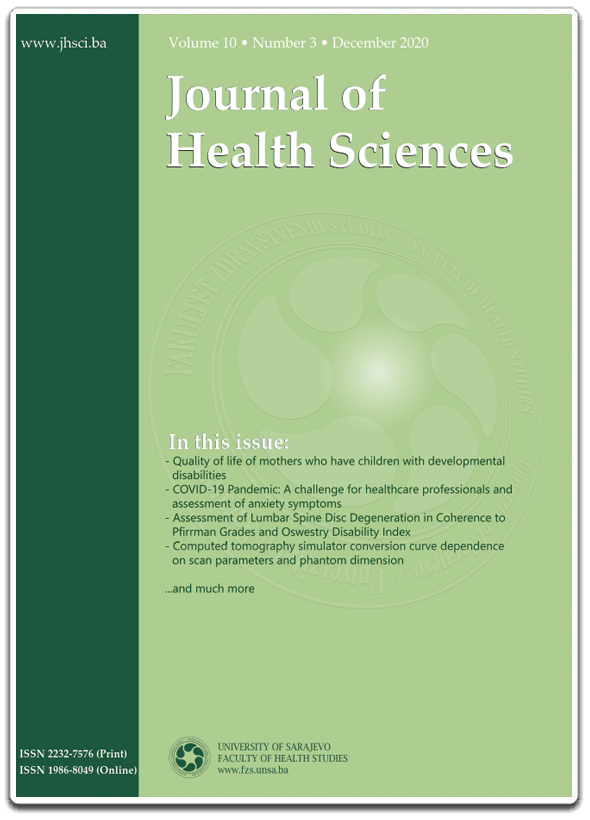Frequency of joined disabilities of children with cerebral palsy in Tuzla canton
DOI:
https://doi.org/10.17532/jhsci.2013.111Keywords:
joined disabilities, children with cerebral palsyAbstract
Introduction: Cerebral palsy (CP) connotes a group of non-progressive, but often variable symptoms of motor impairment of movement and posture, as well as other impairments which are a consequenceof anomalies or brain impairment in different phases of its development. CP is a pathological condition characterised in the fi rst place by motor function impairment to which other disorders such as: visual and
hearing impairment, intellectual defi cit, emotional problems, behaviour disorder, speech disorder, epileptic seizure and similar can join. The aim of this study is to determine frequency of joined disabilities of
children with cerebral palsy in Tuzla Canton.
Methods: The research covers a total sample of 48 examinees, chronological age from 2-19 years, in Tuzla Canton. Research instrument was a Structural Questionnaire for the parents of children and adolescents
with cerebral palsy. Research data were processed by nonparametric statistics method. Basic statistical parameters of frequency and percentages were calculated, and tabular presentation was made.
Results: After classification of examinees as per frequency of joined disabilities was done, work results have shown that speech impairment occurred with 35.4 % of children, visual impairment 33.3 %, epilepsy
29.3 %, whereas hearing impairment occurred with 2 % of children.
Conclusion: In research of frequency of joined disabilities of children with cerebral palsy in Tuzla Canton, most expressed are speech and visual disorders with children, then epilepsy, whereas a small percentage
of children are with hearing disorder.
Downloads
Download data is not yet available.
Downloads
Published
15.12.2013
Issue
Section
Research articles
How to Cite
1.
Frequency of joined disabilities of children with cerebral palsy in Tuzla canton. JHSCI [Internet]. 2013 Dec. 15 [cited 2026 Jan. 15];3(3):222-6. Available from: https://jhsci.ba/ojs/index.php/jhsci/article/view/96










